From Plastic to Jaguars: Belize Acts on Climate Change
On Monday, we brought you the opening of Belize’s fourth annual Climate Week. The event brought together organizations, authors, and conservationists, all with one goal: to inspire change in how we care for our environment. Tonight, we take a closer look at some of the creative and inspiring ways organizations are stepping up to the challenge.
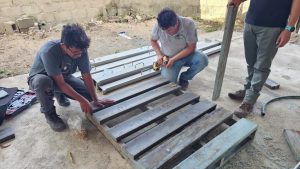 Zenida Lanza, Reporting
Zenida Lanza, Reporting
From recycling plastic into park benches to protecting jaguars deep in the forest, the solutions to climate change are coming alive at Climate Week. Here’s what we found at some of the booths. At the Humana People to People Belize stand, waste isn’t just trash, it’s raw material for something new. Imagine turning plastic waste into something useful, like benches or fenceposts. That’s exactly what the team behind the Full Circle Belize Project is doing. They’re piloting a recycling initiative that’s not only helping the environment but also giving back to local communities. We caught up with Damris Blaze, who shared how this creative solution could be a game-changer for both sustainability and community development.

Damris Blaze
Damris Blaze, Project Officer, Full Circle Belize
“We would like to collaborate with more persons, get as much partners to know about the project, and if they would like to sign MOUs for them to donate plastic or bring plastic to Full Circle Belize. But to also share awareness and overall share about the project, and what it is about and how they can be part of the solution and reducing the amount of plastic that is the overall goal.”

“Faiya Taiga”
Books also have a place during Climate Week. Author, Dr. Gail Lash shared her children’s story “Faiya Taiga”, which imagines an animal guide teaching humans how to use fire responsibly. She hopes to see her book in every primary school in Belize, encouraging the next generation to think differently about how we live with nature.
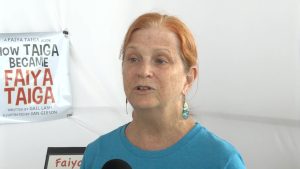
Gail Lash
Dr. Gail Lash, Author
“The mountain pine ridge nearby was on fire. Thirty-four thousand acres burned in the Mount Pine Ridge, and of course in Toledo district. Over, gosh, I think it was four hundred families were affected, and lost up to twelve thousand, I’m sorry, twelve million dollars in agricultural crops. So, fire really can be a threat to everyone and our livelihoods if we don’t take responsibility for it. So, that’s what led me to write the book.”
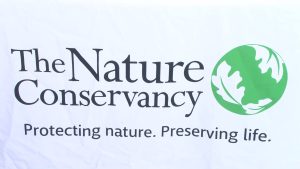 Meanwhile, The Nature Conservancy Belize puts farming at the center of their display, showing how agriculture and conservation can work hand in hand. From sugarcane fields to livestock farms, a new regenerative agriculture program is helping Belizean farmers strike a balance between productivity and sustainability. We spoke with Dr. Luciano Chin, who explained how these eco-friendly practices could transform the way we grow food and shape the future of agriculture in Belize.
Meanwhile, The Nature Conservancy Belize puts farming at the center of their display, showing how agriculture and conservation can work hand in hand. From sugarcane fields to livestock farms, a new regenerative agriculture program is helping Belizean farmers strike a balance between productivity and sustainability. We spoke with Dr. Luciano Chin, who explained how these eco-friendly practices could transform the way we grow food and shape the future of agriculture in Belize.
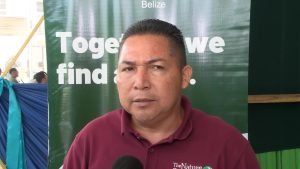
Luciano Chin
Dr. Luciano Chin, Regenerative Agriculture Specialist, T.N.C.
“Testing a lot of the practices that would allow us to reduce the direct impact that the sugarcane industry causes to our environment. We know that for more than fifty years we have been implementing on sustainable practices that has direct impact to our soil, to our biodiversity, to the environment.”
 For the Corozal Sustainable Future Initiative, Climate Week was about protecting Belize’s wildest residents, its jaguars. CSFI is the first in the country to set up a national capture team that responds to conflict jaguars. Their booth highlighted how conserving forests, and biological corridors help keep both people and jaguars safe. Edwany Ramos had one clear message for the public and it’s one they hope will truly stick.
For the Corozal Sustainable Future Initiative, Climate Week was about protecting Belize’s wildest residents, its jaguars. CSFI is the first in the country to set up a national capture team that responds to conflict jaguars. Their booth highlighted how conserving forests, and biological corridors help keep both people and jaguars safe. Edwany Ramos had one clear message for the public and it’s one they hope will truly stick.
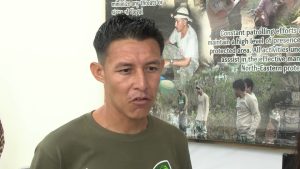
Edwany Ramos
Edwany Ramos, Corozal Sustainable Future Initiative
“We really want people to understand the importance of connectivity. Especially for our biological corridor, which plays an important role for the passage, which creates like a bridge connecting one protected area to another. So that we continue having this iconic animal, which is the jaguar, for our future generations.”
As we’ve seen, tackling climate change isn’t just about policies, it’s As we’ve seen, tackling climate change isn’t just about policies, it’s about people, ideas, and communities working together to protect Belize for generations to come. Zenida Lanza for News Five.




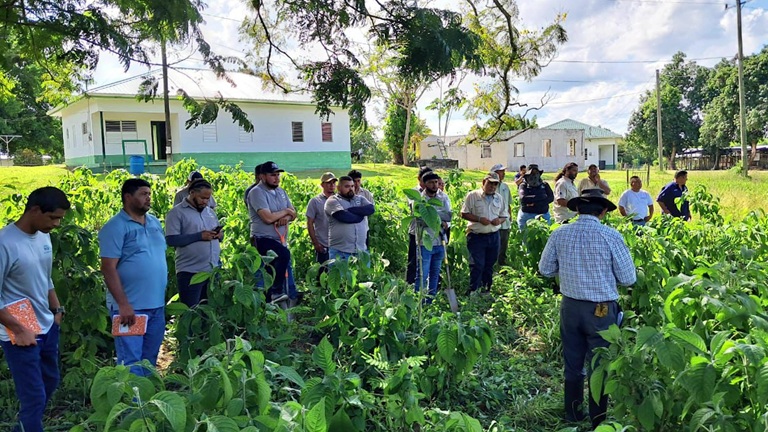

Facebook Comments